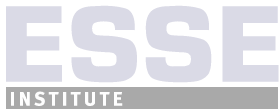Sathya Sai Education
The philosophy of Sathya Sai Education is best described by the concept of ‘Educare’: To realize the true human potential and to transform.
According to the Oxford Dictionary of English Language the word “Education” has a double Latin root. The first is “educare”, which means to foster, to nourish and to feed. The second is “educere”, which means to educe, to bring out and to manifest. Sathya Sai Education includes both these aspects, which complement one another. The first is related to external and worldly education. The second aspect is related to spiritual education. Here the emphasis is placed on the process of bringing out the inherent Human Values, which manifest as the beauty of the character.
Educare
During an international conference on education in human values, Sathya Sai coined the term “Educare” for this process: ‘Spiritual education brings out the inherent divinity of man. Thus, both the secular and spiritual education are required, without which human life has no value.‘
Educare is to bring out every form of knowledge and capacity that is latent in man.
Educare is to bring out the physical, mental, ethical and spiritual potentials within man.
Present-day education normally focuses on the first two domains related to human nature, emphasizing the development of physical skills and mental ability. However, in the SSEHV Programme emphasis is put on the spiritual potentials and higher reason, which is the origin of human ideals.
Educare is to bring out the innate Human Values.
This can be achieved when the three aspects of human nature are equally developed. When they are aligned and coordinated with one another, the human personality is refined and uplifted, thus manifesting the fundamental values of Truth, Righteousness, Peace, Love and Nonviolence.
The Goal of Education
The goal of education is character and this manifests itself in the unity of thought, word and deed based on Universal Love. Divinity is understood as this Universal love. It is the underlying principle of all the human values.
The purpose of this education is to live a human and spiritual life at the same time.
Therefore secular and spiritual education should both come together in a philosophy and theory of education that serves the needs of society better.
The crucial premise of this system is the fact that the realization of one's true nature can be supported and nourished by various forms of educational activities, and this for all students at all stages of their development. Thus, Sathya Sai Education brings with itself a lifelong process of transformation and seeks to strengthen the relationships between the individual, the family, the society and the whole creation.
The Paradigm Shift
The need for a paradigm shift within education to meet the challenges of the world today is very well expressed in the report ’Learning: The Treasure within’ drawn up by the Delors Commission under UNESCO. They identify four crucial pillars needed for human personality development: “Learning to know”, “Learning to do”, “Learning to live together”, and “Learning to be“.
“Learning to live together” in a family, at a workplace and in the society at large has become paramount.
In SSEHV the “Learning to Be” induces the spiritual transformation process that leads to full understanding of one’s true identity and helps to live a life based on the spiritual principles of the Universal Human Values.
It is well known that today’s schooling is mostly intellectual and skill-oriented, while it does little to develop good qualities, such as character, common sense as well as social skills and abilities. By adapting moral, ethical and spiritual understanding from early childhood, children will grow into caring and responsible adults, who learn to meet the challenges of life with resourcefulness, positivity and inner strength.
Good education is that which teaches the methods of achieving world peace; that which destroys narrow-mindedness and promotes unity, equality, and peaceful co-existence among human beings.
Sathya Sai

